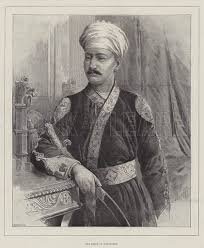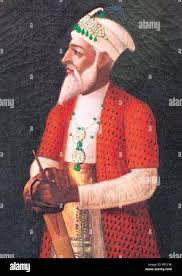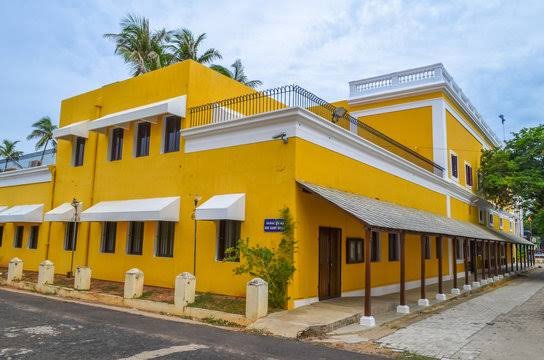The Intrigues of the Second Carnatic War: Chanda Sahib and the Anglo-French Rivalry
The Second Carnatic War (1749-1754) was a significant conflict between the British East India Company and the French East India Company, fought primarily in the southern region of India known as the Carnatic. This war was marked by intense rivalries, political intrigues, and shifting alliances.
Chanda Sahib’s Coronation in Pondicherry
Chanda Sahib, a nobleman from the Deccan region, played a crucial role in the Second Carnatic War. He was appointed as the Nawab of the Carnatic by the French, who sought to establish their influence in the region. Chanda Sahib’s coronation took place in Pondicherry, which was the capital of French India at the time.
Pondicherry, also known as Puducherry, was a significant French settlement and a center for trade and politics in the region. The French had established their presence in Pondicherry since the 17th century and had developed close ties with local rulers and nobles.
Chanda Sahib’s coronation in Pondicherry was a strategic move by the French to legitimize his claim to the Carnatic region and gain local support. It was also a symbolic gesture to showcase the alliance between Chanda Sahib and the French, further fueling the Anglo-French rivalry in the Carnatic.
The Anglo-French Rivalry and the Role of Chanda Sahib
The Anglo-French rivalry in India was a result of the European powers’ desire to control the lucrative trade routes and establish dominance in the region. The Carnatic became a battleground for this rivalry, with local rulers like Chanda Sahib caught in the middle.
Chanda Sahib’s alliance with the French was a strategic move to counter the growing influence of the British in the region. The British had supported Chanda Sahib’s rival, Muhammad Ali Khan Wallajah, in his claim to the Carnatic. This led to a series of conflicts and power struggles, culminating in the Second Carnatic War.
Chanda Sahib, with the support of the French, launched several military campaigns against Muhammad Ali Khan Wallajah and the British forces. He managed to capture the city of Arcot, which was a significant stronghold of the British in the Carnatic. This victory further strengthened Chanda Sahib’s position and posed a significant threat to the British presence in the region.
The Death of Asaf Jah and it’s consequences


Asaf Jah, also known as Nizam-ul-Mulk, was the ruler of Hyderabad, a powerful state in the Deccan region. His death in 1748 created a power vacuum and intensified the political intrigues in the Carnatic.
Chanda Sahib, with the support of the French, sought to exploit this situation and expand his influence in the Deccan. He made alliances with local rulers and sought to establish his authority over Hyderabad. However, his ambitions were cut short when he faced a series of defeats at the hands of the British and their allies.
In 1752, the British, led by Robert Clive, launched a successful campaign against Chanda Sahib and his allies. Chanda Sahib was captured and executed, marking the end of his brief but eventful reign in the Carnatic. His death weakened the French position in the region and paved the way for British dominance in southern India.
Conclusion
The Second Carnatic War and the intrigues surrounding Chanda Sahib’s coronation in Pondicherry highlight the intense Anglo-French rivalry in India during the 18th century. The conflict had far-reaching consequences, shaping the course of history in the region and ultimately leading to British dominance in southern India.
Pondicherry’s street named after Chanda Sahib serves as a reminder of this turbulent period and the complex dynamics of power and politics in the Carnatic. It stands as a testament to the historical significance of Chanda Sahib and his role in the Second Carnatic War.The French were always diplomatic .Chanda Sahibs coronation was symbolic of the power shift from Indian to French and they depicted it wisely in the pomp and show around the whole ceremony.



One response to “A STREET NAMED CHANDA SAAHIB IN PONDICHERRY :War of Carnatic and it’s reminiscence”
Chanda Sahib was executed by Mohammad Ali son of Anwaruddin (was killed by Chanda Sahib in battle of Ambur ,Vellore)
So its just a turn of the table